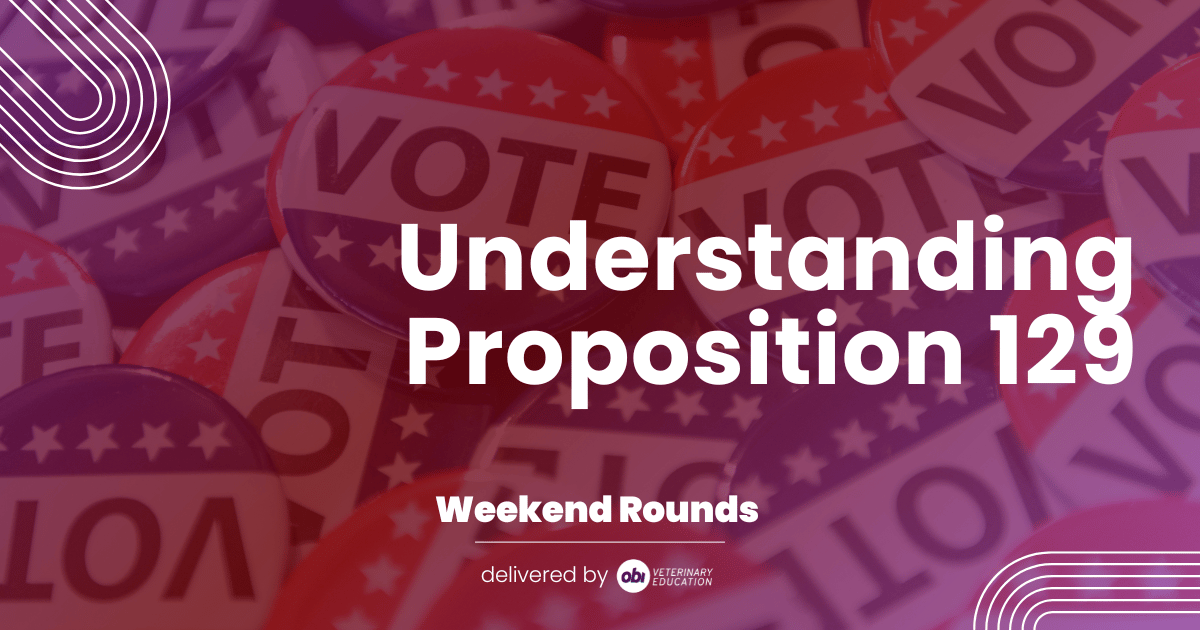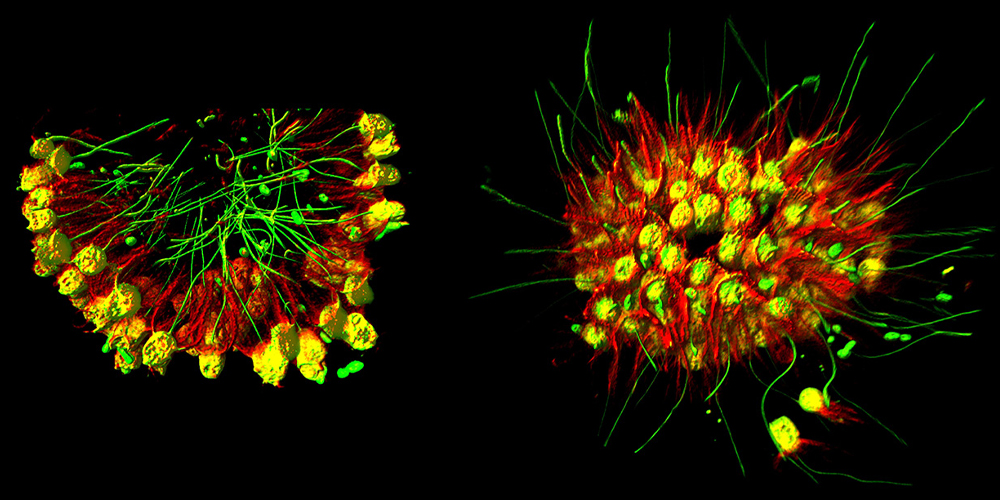
Hello 👋
Welcome back to another edition of Weekend Rounds!
It’s the last week of October, which means it’s spooky season! We’re in Canada so that means it’s time to make some hot chocolate, fire up Beetlejuice, and enjoy the last of autumn before winter.
May you have more cute chocolate labs, and fewer chocolate toxicities this Halloween.
Here’s what we’re covering this week:
🗳 Understanding Proposition 129 in Colorado
💻 How AI should be used in vet med
🩻 Radiology Case of the Week
🚀 Quick hits
🗳
Everything you need to know about Prop 129
On November 5, as Americans go to the polls to vote on their next President, more than the Oval Office will be on the ballot. 159 statewide ballot measures will be voted on including some extremely important topics. There are 11 ballot measures on abortion and the right to choose, 8 on citizenship matters, and another 11 on the electoral system itself.
But in Colorado, voters across the state will have the chance to vote on Proposition 129, which puts forward the idea of a licensed midlevel practitioner.
The ballot is written as follows:
Shall there be a change to the Colorado Revised Statutes creating a new veterinary professional associate profession, and, in connection therewith, establishing qualifications including a master’s degree to be a veterinary professional associate; requiring registration with the state board of veterinary medicine; allowing a registered veterinary professional associate to practice veterinary medicine under the supervision of a licensed veterinarian; and making it a misdemeanor to practice as a veterinary professional associate without an active registration?
A "yes" vote supports creating a new profession, the veterinary professional associate (VPA), while a no vote opposes it.
The VPA's role would include tasks that have typically been restricted to veterinarians, such as diagnosing, performing minor surgeries and providing prognoses — all under a veterinarian's supervision. It is the veterinary equivalent nurse practitioners or physician associates in human medicine.
So how did we get here?
Support (and accompanying dissent) for the midlevel practitioner has been ramping up over the last few years. Proponents have put forward the idea that one way to positively address some of the largest pain points in our professions - long hours, burnout, stress, and more - would be to create a new professional designation that can take some of the workload. And by shortening the education time for a midlevel practitioner, vet clinics could be hiring their first VPAs in just a few years.
VPA proponents have tried before. Four year ago, a bill in Colorado would have enacted a very similar role, but it did not advance. Instead, veterinary technicians were granted title protection and an expansion of their role in the Colorado Veterinary Practice Act.
In 2024, Florida and Colorado quickly became the epicenters of the debate, as legislation was quickly drafted and put forward. The Florida bill passed through the House, but did not make it past the Senate in March of this year. In Colorado, the measure is set to go in front of voters in just over a week.
Who’s in favor? Who’s opposed?
The bill is primarily supported by a group called All Pets Deserve Pet Care, which is funded by Dumb Friends League and the ASPCA. According to All Pets Deserve Pet Care, they are looking to advocate and solve for:
the 50% of Coloradans who have reported they were unable to see a veterinarian over the last two years
the 23 Colorado counties identified by the USDA as ‘veterinary shortage areas’
the 1 million pets in Colorado needing veterinary care
On the other side of the ballot, is a number of well-known veterinary organizations including the The American Animal Hospital Association (AAHA), American Board of Veterinary Practitioners (ABVP), American Veterinary Medical Association (AVMA), and Student AVMA (SAVMA).
The opponents argument looks something like this:
there are risks to having non-veterinarians perform tasks like diagnosing, treating, prescribing, and surgery, thereby endangering animal health
they don’t believe there is a veterinary shortage that needs addressing in this manner
the rights of veterinarians need to be protected
So what does this mean?
The results of this vote, could create a lasting impact in our profession, across all states - not just in Colorado. If the vote passes, how the VPA is instituted and the success of the program will almost certainly influence copycat legislation in other states. With high profile organizations like the AVMA throwing their support behind the opposition, a victory for the ‘yes’ votes would be destabilizing for their thought-leadership and advocacy in the profession.
If you’d like to read the full Proposition, we recommend Ballotpedia which breaks it down nicely.
So what do you think?
Should Colorado create a new profession, the veterinary professional associate (VPA), requiring a master's degree and registration with the state board of veterinary medicine, to practice under supervision of a licensed veterinarian.
—
This story was made possible by the stories linked above, as well as:
💻
How AI can be most effective in vet med
Our co-founder Dr. Ryan Appleby wrote an opinion in Today’s Veterinary Practice on the Effective Adoption of Artificial Intelligence in Veterinary Medicine.
Ryan believes that that the current iteration of AI is at its best an underwhelming collection of products with vast unmet potential and at its worst is the unethical endpoint of unbridled capitalism.
AI systems are already available in veterinary practice. However, Ryan believes that veterinary practices need more information from AI companies to effectively implement this technology in practice. In this article he breaks down the types of AI into different classification schemes and discusses the importance of transparency in understanding how AI systems are made and how they can be monitored in practice.
Whether you use AI, plan to use AI or never want to use it we hope you will give this one a read. We are biased but think this is one of the best summaries on what is needed to get towards effective adoption of AI in veterinary practice.
🩻
Radiology Case of the Week
Welcome back to the Reading Room!
Last week we asked whether you would take the patient to surgery and Weekend Rounds readers crushed it again with almost 70% of respondents nailed it and identified the obstruction and were ready to head to the OR.
Check out the case review below.
This week we are looking at an 8 year old Poodle presenting for profuse vomiting.

Left lateral radiograph of a poodle presenting for vomiting.
Based on the radiograph provided. What is the most likely diagnosis?
🚀
Quick Hits
Here are some of the other stories that caught our eye and we're following this week from around the veterinary world and animal kingdom:






